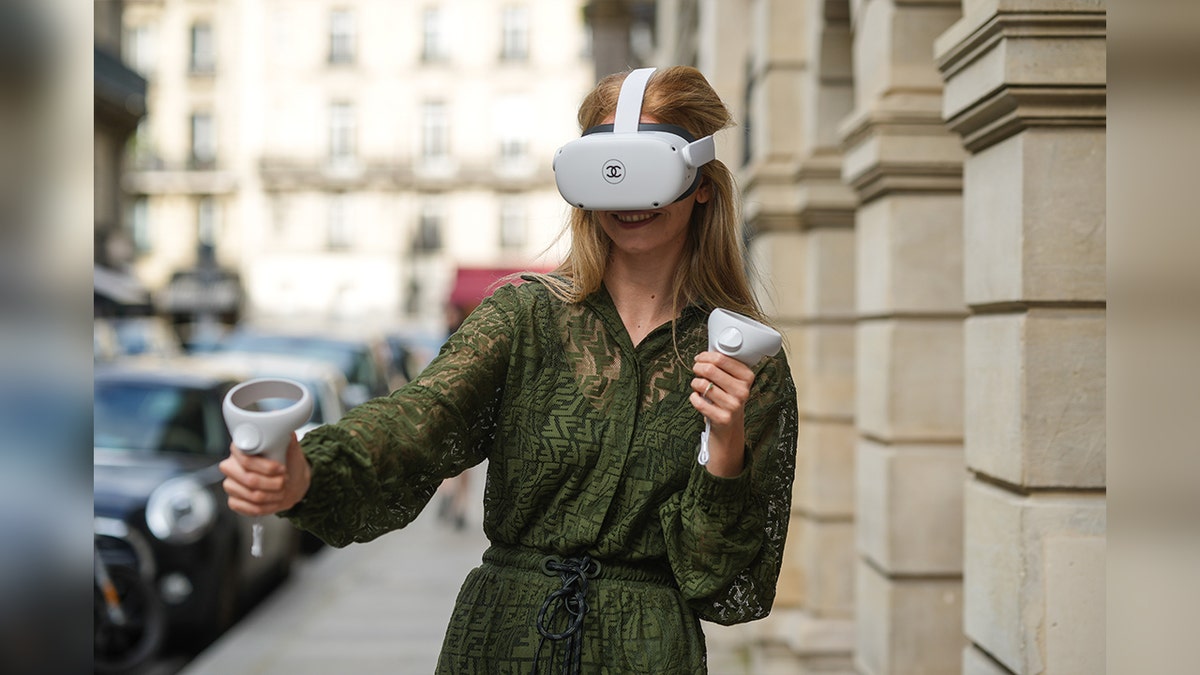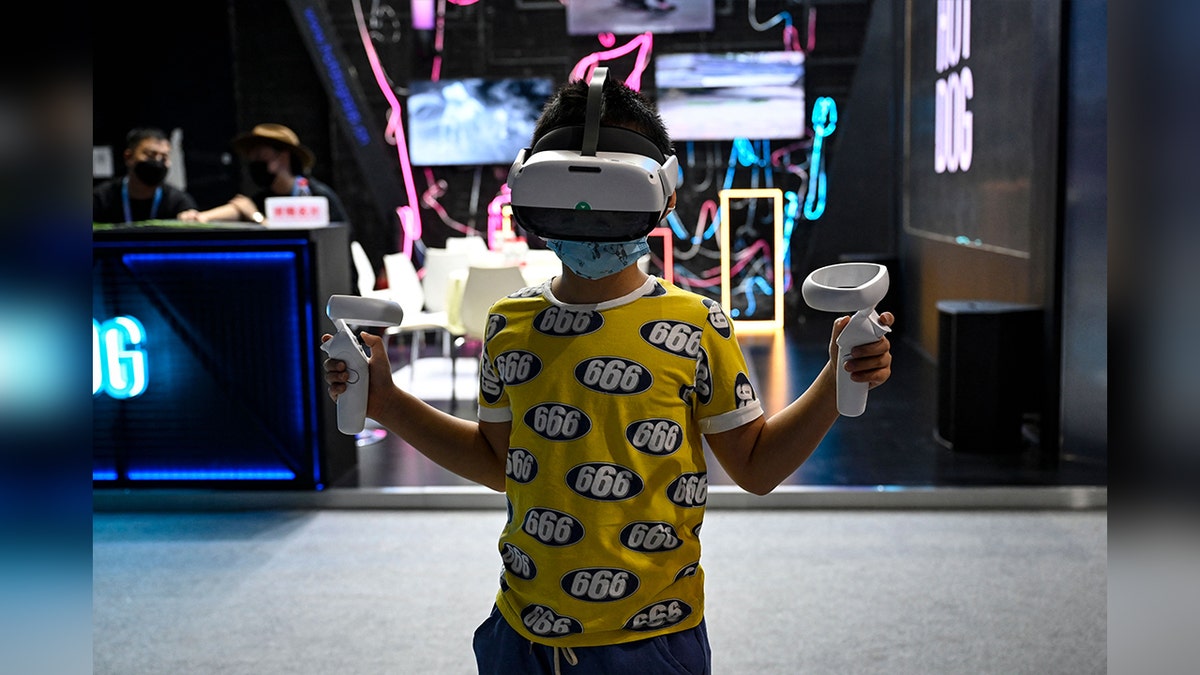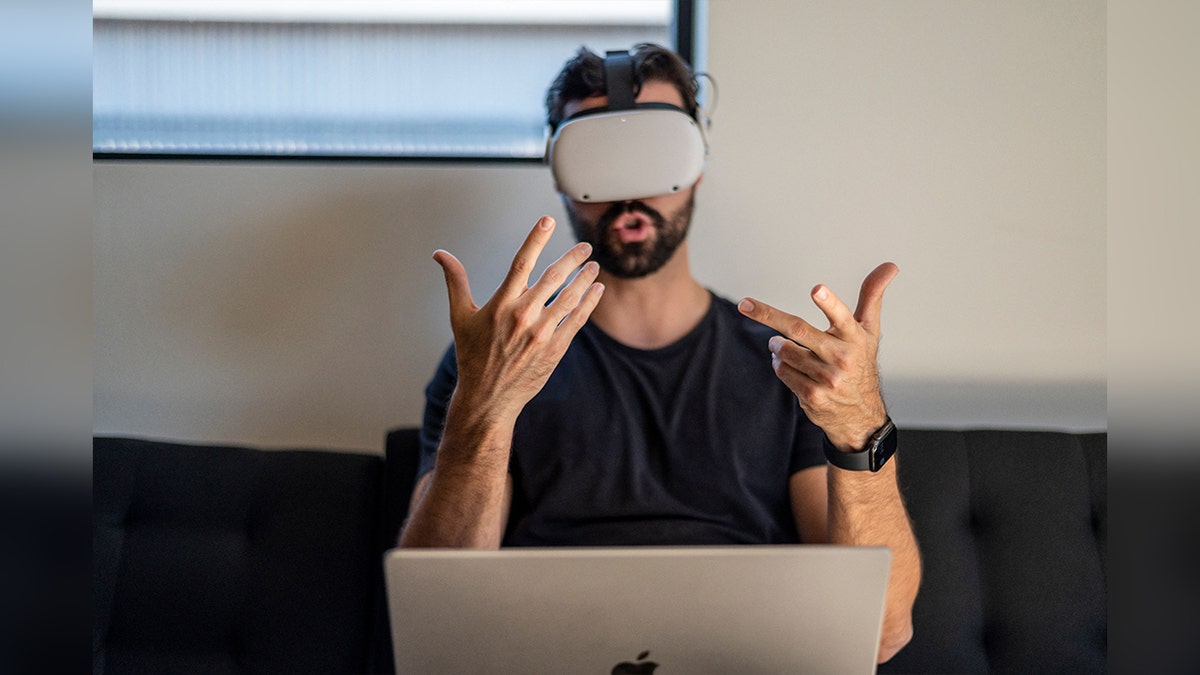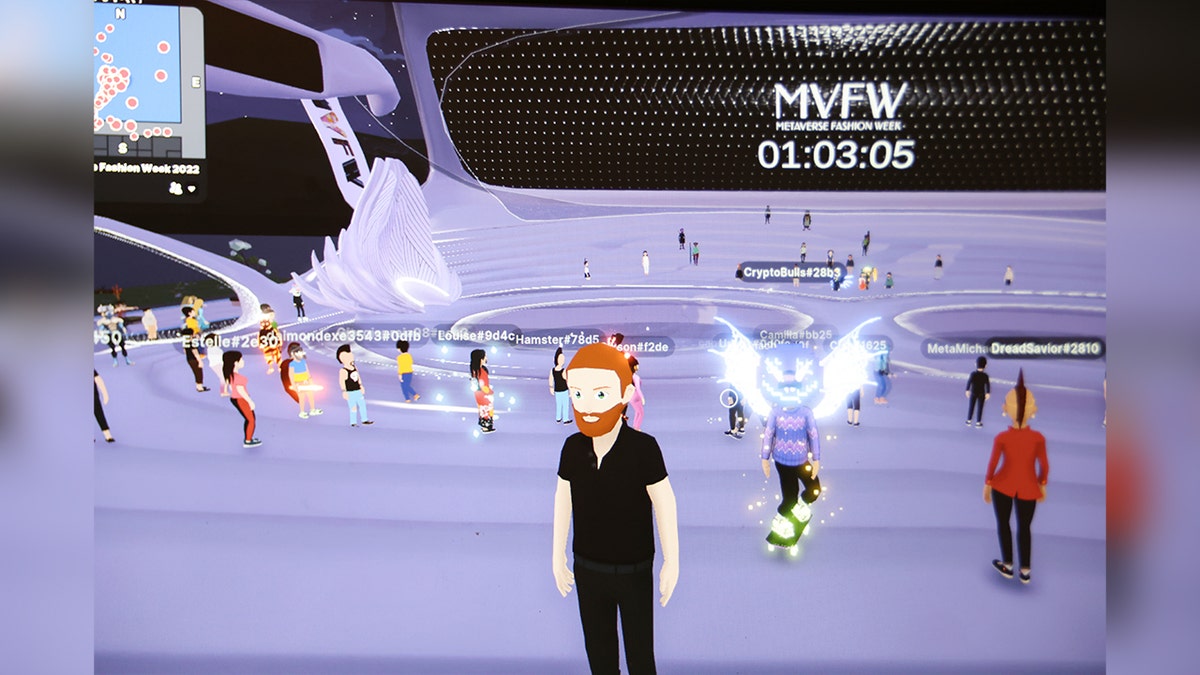Virtual reality could treat your worst fears
Douglas Kennedy reports on virtual reality therapy helping patients confront their phobias.
The investigation of an alleged virtual reality (VR) sex offense in the United Kingdom – the reported rape of a teenage girl's avatar by multiple people in the metaverse – showcases the potential dangers faced by unwitting children who don headsets to play immersive games.
The girl, younger than 16 years old, used a headset to get into a VR room when men attacked her avatar, according to Leading Britain's Conversation, which reported that she was not physically injured but was "said to be psychologically and emotionally traumatized."
Donna Jones, chair of the Association of Police and Crime Commissioners, said a complaint in 2023 led to the police investigation, the BBC reported earlier this month.
The incident shed light on a landscape that experts in the U.S. said could pose problems for children, parents and authorities.

Police in the U.K. are investigating the alleged sexual assault of a child under 16 years old in the metaverse, raising questions about how similar attacks could be prosecuted and, ideally, prevented in the United States. (Getty Images)
What is the metaverse?
The metaverse is considered "a proposed immersive version of the internet accessed via virtual-reality headsets, augmented reality glasses, phone apps or other devices," according to The Associated Press. "Think of the metaverse as the internet brought to life, or at least rendered in 3D."
The U.S. Congressional Research Service describes the metaverse as an "immersive virtual world."
Some virtual systems, including Meta's Oculus Quest, permit users as young as 10 to make accounts. Although Meta states that preteens must have parental controls on their accounts, it appears that that policy is enforced by other users, who use a function within their interface to report underage users. Once reported, users must share a copy of their legal identification with meta, a process often griped about by older players online or that of a supervising parent.
Senator Edward J. Markey (D-Mass) and Representatives Kathy Castor (D-FL) and Lori Trahan (D-MA) urged the Federal Trade Commission to use its authority under the Children's Online Privacy Protection Act (COPPA) to ensure that children are protected in the immersive new territory of the metaverse, but laws on the books have yet to catch up with the virtual reality.
COPPA aims to protect the privacy of children under the age of 13 by requiring parental consent for the collection of their personal data.
AI CAN DETERMINE PERSONAL INFORMATION THROUGH AR, VR USERS' MOTION DATA, STUDIES SAY

Children as young as 10 are allowed to use the Oculus Quest with parental permission, per the system's guidelines, but ages are only verified when users step in and report others for potentially being underage. (Getty Images)
However, Patrick Roberts of Roberts Law Group PLLC, who previously prosecuted child pornography and child abuse cases from North Carolina's Wake County District Attorney's Office before embarking on his own practice, told Fox News Digital that using existing laws to govern the metaverse would "just be window dressing."
"It’s going to take a very long time and a lot of children being traumatized – or women, frankly – before anybody feels like it’s a real threat that needs to be addressed," Roberts said.
"It’s going to be a necessity to create a framework," he continued. "Otherwise it’s going to be the Wild West and you’re going to have traumatized children. It’s not a matter of will it happen, but how quickly Congress will act and how quickly laws will catch up to prevent online attacks. There will absolutely be a time when those laws will exist, and the driving factor may be the research that psychotherapists do on young kids."
"It’s going to be a necessity to create a framework. Otherwise it’s going to be the Wild West and you’re going to have traumatized children."
Attorney Matthew Sarelson, who deals with social media law and has represented YouTubers and other influencers in major lawsuits, told Fox News Digital that the British minor was likely compelled by her attackers to perform some sort of sexual act on herself in the real world and that to hold legal weight, any potential prosecution of an incident in VR would likely need a real world connection.
"I've seen a couple of high profile cases where simply convincing someone to do something over a text message or over a message, that could result in potentially criminal charges," he told Fox News Digital. "But what we don't have yet is any statutory framework for criminal activity occurring exclusively in virtual reality."
Sarelson compared potential virtual reality litigation to Counterman v. Colorado, a 2023 case in which a man faced criminal charges for sending hundreds of Facebook messages to a singer and musician. The singer tried repeatedly to block him, but Billy Counterman created multiple accounts to repeatedly threaten her. Counterman was initially sentenced to 4.5 years in prison on stalking charges, but he appealed the Colorado court's decision, ultimately bringing his case to the Supreme Court.
SCHOOLS NATIONWIDE WERE ROCKED BY ALLEGED SEX CRIMES AGAINST MINORS IN 2023

The Oculus Quest 3, the newest iteration of Meta's virtual reality headsets, was released in October. Parental controls can be set up on the Oculus Quest 2 and 3 models. (Getty Images)
The court ruled that his comments were protected by the First Amendment, if his repeated messages were not "true threats" statements that a reasonable person would infer an intent to harm someone in real life.
"If I say 'I'm going to kill you' and I'm in the U.S. and you're in sub-Saharan Africa, it's not a real threat," Sarelson explained "This is a story of someone who is perpetually tormenting this person over a period of several years – it's grotesque conduct, [but] the law doesn't criminalize you being an a--hole."
However, Roberts told Fox News Digital that sexual conduct toward children in virtual reality could easily escalate to a real-life threat with the exchange of personal information.
"This is something where a person acts out a deviant sexual fantasy or desire. The worry, as with child porn, is that it goes from the virtual and transcends the virtual into reality. The concern is that if the conduct is of a graphic nature, like avatar on avatar rape, would this person be inclined to carry this out in the real world or find another potential woman that looks like the avatar and try to act this out?" Roberts said.
Much of any future regulation in the metaverse, Sarelson said, will have to be done by companies themselves, like Meta. The media giant, he said, would likely welcome a governmental push for its self-regulation.
"It's called 'regulatory capture,'" Sarelson explained. "Mark Zuckerberg has said that he welcomes regulation from Congress. He wants regulation from Congress. He wants to be able to say 'We comply with what Congress orders of us.'"
META'S LATEST ATTEMPT TO SPY ON YOUR ONLINE BEHAVIORS

"These are the conversations that we need to start having – how do we do this? You can very easily imagine these kinds of situations, where a 10 or 11-year-old kid is interacting with someone who they think are also a kid. There's currently no way to know that the kid he's playing with is also an 11-year-old," says Attorney Matthew Sarelson. (Getty Images)
Meta would have the resources to comply with whatever parameters are imposed, Sarelson said – meanwhile, any potential competing start-ups may not have the capital to impose additional fail-safes.
Both attorneys questioned whether criminal conduct in the metaverse would, or should, carry the same consequences as actions in the "real world."
"What’s the consequence? If I’m a law-abiding citizen in the real world and I’m a rogue in the metaverse, should I go to jail? Should I pay a fine? Should I be banned from the internet? What’s an appropriate punishment?" Roberts asked.
Likely, both attorneys reasoned, a solution to safety concerns in the metaverse will come from the verification of its users through identification.
"Anonymity is great except you have to be a real person to open a bank account, you have to be a real person to rent an apartment, you have to be a real person to lease a car, you have to be a real person to get on a plane. ‘Idahofarmboy27’ is not getting on an airplane," Sarelson said. "Pre 9/11, you could buy a ticket in cash... we don't do that anymore. Why? Because we as a society have decided that there are benefits to showing your ID."
"You want to get on an airplane? Show ID. You want to play a multiplayer online game where you could run into kids? Show an ID," he continued.
MILITARY METAVERSE LIKE A 'MULTIPLAYER VIDEO GAME' THAT WILL TRAIN SOLDIERS USING AUGMENTED REALITY AND AI

Users can communicate via body motions and speech in the metaverse, and create their own avatars to interact with others. (Getty Images)
This approach could protect not just children in the metaverse, but unsuspecting adult users. A new report by Europol, published this winter, detailed how virtual reality could be used to spread disinformation, commit identity theft, spread ransomware, spy on users and even for scammers to commit fraud.
Despite its apparent gray areas, 29% of teens had a VR headset as of last April, according to a Piper Sandler survey. So, how can parents protect their children as regulations catch up to the metaverse's capabilities?
CLICK HERE TO GET THE FOX NEWS APP
"At some point you need to understand what the metaverse is and be on the metaverse with your kid, maybe be in the room sometime when they have the headset on," Roberts told Fox News Digital. "The more obvious thing is to ask your kid a lot of questions – don’t just let them go be parented by these online systems, but really engage and ask ‘Do you feel safe? Have you ever had any incidents? Is this something where you ever feel like you’re being harassed and bullied?’"
Parents can also set up parental controls on Oculus Quest 2 and 3 models, allowing them to monitor their children's activity and the apps they download.
Fox News Digital could not reach Meta for comment at press time.












































